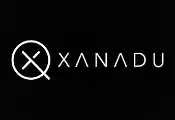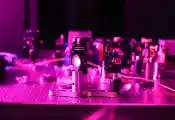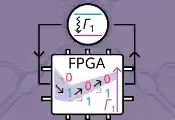Kennesaw State Researcher Receives NSF Grant to Enhance Quantum Machine Learning Education
October 7, 2024 -- At a time when data are doubling every two years, the U.S. is projected to create over 40 billion gigabytes of data by 2025. To prepare for the influx, Kennesaw State University associate professor Yong Shi, an expert in quantum machine learning (QML), aims to unlock insights from the data surge and educate future QML researchers.
Shi, along with colleagues Dan Lo, professor of computer science, and Luisa Nino, assistant professor of industrial and systems engineering, recently secured a National Science Foundation (NSF) grant to develop open-source, hands-on QML training materials to address the shortage of researchers and their limited presence in higher education.
Quantum machine learning is a discipline that combines the advanced abilities of quantum computers with techniques that help machines learn from large data sources. Unlike regular computers that handle information step-by-step, quantum computers use the principles of quantum mechanics to look at large amounts of data all at once. This allows them to find patterns that traditional computers might miss.
In collaboration with Florida A&M University, Kennesaw State will create nine training modules with hands-on labs covering key quantum computing concepts and their applications in computer science and industrial engineering. These modules will be integrated into existing courses, accompanied by faculty workshops and student training camps, ultimately enhancing research and creating diverse communities in QML.
“This initiative is not just about teaching QML; it’s about building a supportive ecosystem that empowers both students and faculty to innovate and collaborate,” said Shi, who teaches in KSU’s College of Computing and Software Engineering.
One of the critical challenges facing the QML landscape is the shortage of skilled researchers. Shi noted that many universities are not yet prepared to teach QML effectively.
“Our goal is to develop a cloud-based lab environment where students can learn and apply QML techniques without needing extensive installations or prior experience,” Shi said.
Through this initiative, KSU aims to create a portable system that allows universities to integrate QML modules into their existing courses. By providing flexible resources, the project aims to make it easier for schools to adopt QML training that fits their specific needs.
The training materials Shi is developing will offer several unique features. The lab environment will be entirely browser based, allowing users to access resources without needing to install software. Moreover, the modules are designed to be interdisciplinary, promoting collaboration between students in computer science and industrial engineering.




































